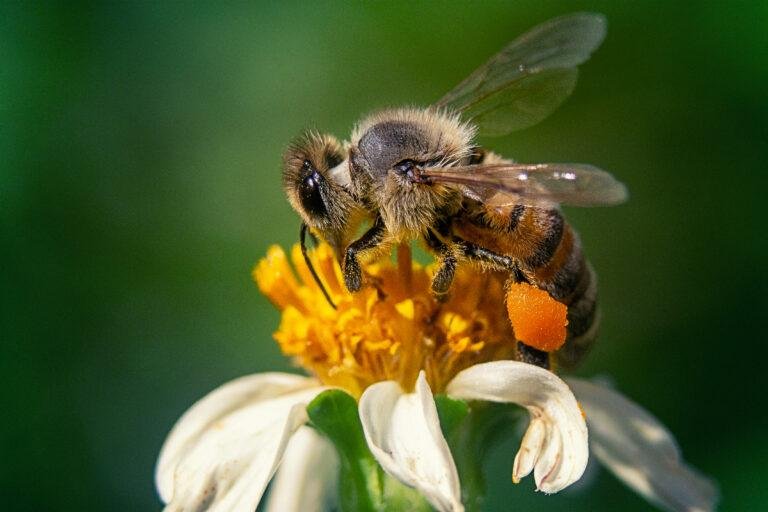Welcome to another exciting episode of The Struggling Scientists podcast! In this episode, we delve into the latest scientific news and discoveries that will leave you both informed and inspired. Join us as we discuss incredible topics such as the potential of bee vaccines, the fascinating world of robot worms, and the groundbreaking use of CRISPR in curing cancer.
Time-Restricted Eating Reshapes Gene Expression:
Intermittent fasting has gained popularity in recent years, and a new study involving mice provides even more insight into its potential benefits. The research found that time-restricted eating can reshape gene expression throughout the body. By putting mice on intermittent fasting, the study revealed that 80% of their genes were altered in at least one tissue.
Results included reduced inflammation, decreased oxidative stress, and improved RNA splicing, protein folding, and ribosome biogenesis. These findings suggest that intermittent fasting may have a positive effect on our body’s overall health.
Microbe That Eats Viruses Discovered:
Imagine a microbe that feeds on viruses. Scientists have discovered Halteria, currently the only known virophore, which consumes viruses. Researchers collected pond water samples, isolated different microbes, and introduced a specific virus called chlorovirus.
They observed Halteria actively feeding on the viruses, confirming its unique behavior. This discovery opens up new possibilities for understanding the intricate relationship between viruses and microbial life.
The first vaccine for Bees approved in US:
The global decline of honeybee populations poses a threat to our ecosystems, and scientists are continuously searching for solutions. In the field of bee health, researchers have developed a vaccine for American foulbrood disease, a bacterial infection that causes colony collapse.
This highly contagious disease currently has no cure, only treatment methods that involve burning infected colonies and treating nearby colonies with antibiotics. The development of bee vaccines offers hope for protecting these vital pollinators.
Male and Female stem cells created from a single person:
For the first time, researchers have successfully created both male and female stem cells from a single individual. Starting with a man with mosaic Kleinfelder syndrome, which results in different X and Y chromosomes in his cells, fluorescence in situ hybridization analysis was used to identify the various chromosome combinations.
The reprogramming of these cells into pluripotent stem cells presents exciting possibilities for personalized medicine and understanding the role of sex chromosomes in various diseases.
Celebrating Gregor Mendel:
In honor of the 200-year anniversary of Gregor Mendel, the father of genetics, scientists took a unique approach to celebrate his legacy. They decided to sequence Mendel’s DNA by exhuming his body. Mendel’s research on inheritance was not initially appreciated during his lifetime but gained recognition posthumously.
By studying Mendel’s DNA, scientists hope to gain further insights into genetics and pay homage to a scientific pioneer.
Curing Cancer with CRISPR:
In a remarkable case, a 13-year-old girl named Alyssa, who had an incurable form of cancer, T cell acute lymphoma leukemia, received a life-saving treatment using CRISPR gene editing. Doctors and scientists used base editing to create new T cells that targeted and eliminated the cancerous T cells in Alyssa’s body.
This groundbreaking technique, coupled with additional treatments, showed promising results in eradicating the cancer cells. Although further research is needed to determine the long-term effects, it offers hope for future cancer treatments.
Papers and Patents are becoming less disruptive:
An intriguing study analyzed millions of research papers and patents to understand the current trends in research progression. The researchers developed a new metric called the CD index, which measures whether a paper or patent is consolidating or disruptive.
Their findings show that many papers and patents today are less disruptive than in the past. Factors such as changes in publishing requirements, technological differences, and reliance on old references may hinder the development of disruptive research.
2.6-billion-year-old CRISPR enzymes can still edit cells:
Scientists in Spain have published a fascinating study on 2.6 billion-year-old CRISPR enzymes that retain their gene-editing capabilities. While they did not defrost billion-year-old bacteria, they utilized computational analysis to study the potential evolutionary paths of DNA.
Their findings suggest a potentially new form of CRISPR that is less immunizing and more efficient when added to human cells. This study expands our understanding of the origin and potential applications of CRISPR technology.
Hemp-Fed Cows and Milk Quality:
In a curious study, researchers investigated the effects of feeding cows with hemp, typically used for CBD oil production. The study found that cows fed with hemp exhibited changes in behavior and THC content in their milk. Their behaviors ranged from increased tongue play and salivation to prolapse and reddening of the necessitating membrane.
The presence of THC in the milk raises concerns for pregnant or breastfeeding women, and further research is needed to determine the safety of consuming such milk.
The Notable World of Robot Worms:
Scientists have implanted light-sensitive proteins, called opsins, into worms to study their behavioral responses to light. By overexpressing these proteins in certain cell types, researchers observed that the worms found the light unpleasant.
While this study did not aim to control the movement of the worms, it offers insights into the intriguing possibilities of exploring the interactions between artificial elements and biological organisms.




